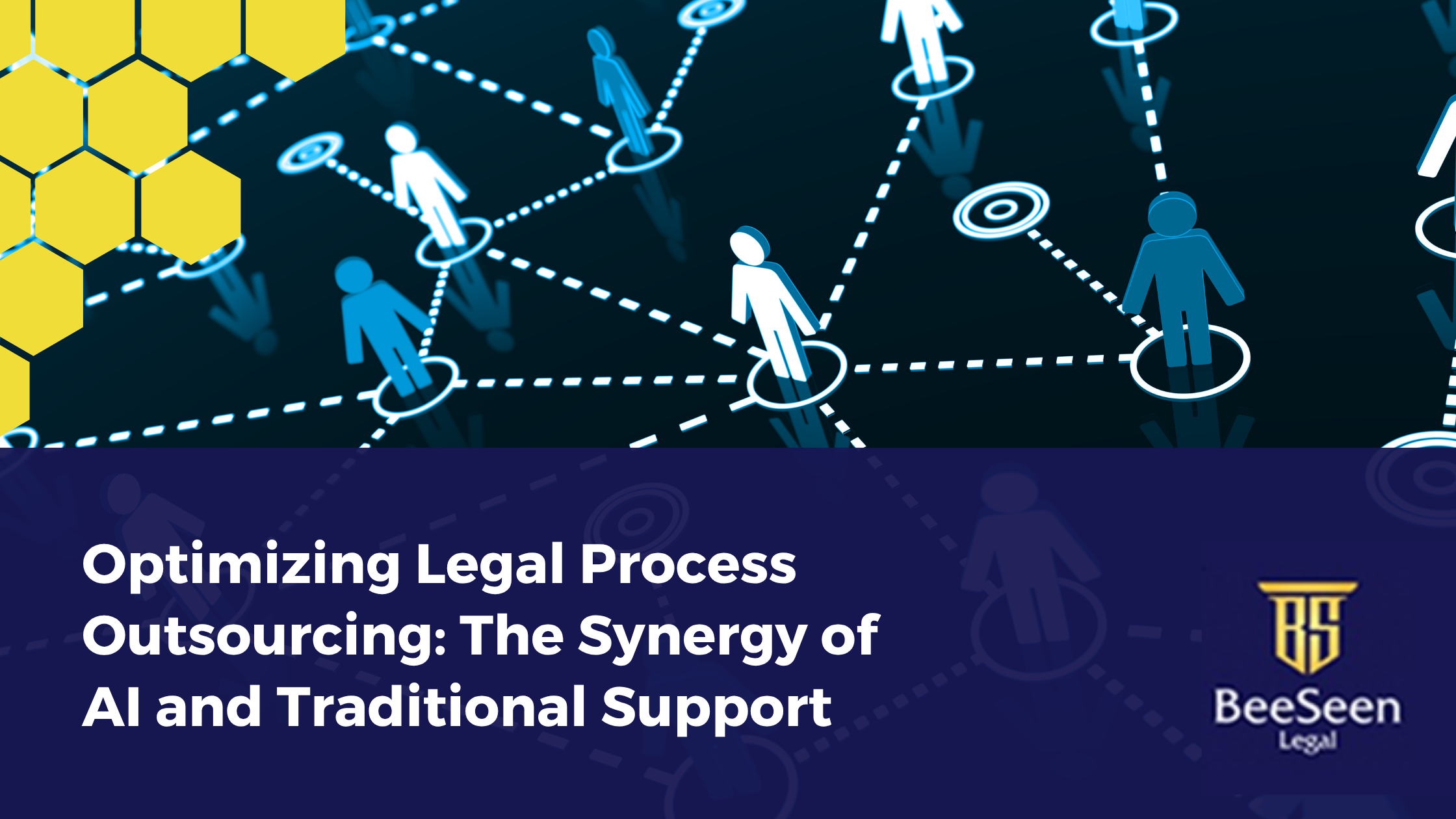Legal Process Outsourcing (LPO) has become a strategic approach for law firms and legal departments seeking to enhance efficiency and reduce costs. In the dynamic landscape of legal services, staying competitive requires a judicious integration of technology. This article explores why LPO providers stand to gain the most by embracing a harmonious blend of Artificial Intelligence (AI) and traditional support.
The Evolving Legal Landscape: A Need for Innovation
The legal industry is undergoing a profound transformation driven by technological advancements. Clients demand quicker turnaround times, cost-effective solutions, and increased transparency. Traditional methods, while reliable, can sometimes fall short in meeting these contemporary expectations. LPO providers must adapt to this evolving landscape to stay ahead.
The Rise of Artificial Intelligence in LPO
Efficiency and Accuracy:
AI, with its machine learning algorithms, can process vast amounts of legal data at speeds unattainable by human counterparts. This not only expedites document review and due diligence processes but also enhances accuracy by minimizing human errors. LPO providers leveraging AI can offer clients more reliable and timely services.
Contract Analysis and Management:
One of the significant areas benefiting from AI in LPO is contract analysis and management. Natural Language Processing (NLP) enables machines to understand and extract crucial information from contracts, significantly reducing the time and effort required for manual review. This not only improves efficiency but also mitigates the risk of overlooking critical details.
Legal Research and Case Prediction:
AI tools can revolutionize legal research by swiftly analyzing vast legal databases and extracting relevant information. Predictive analytics, powered by AI, can assist legal professionals in forecasting case outcomes based on historical data. This blend of speed and insight is invaluable for LPO providers aiming to offer comprehensive and data-driven solutions.
The Human Touch: Traditional Support in LPO
Client Interaction and Relationship Building:
While AI excels in processing data, the human touch remains irreplaceable in client interactions. Building trust, understanding nuanced requirements, and providing personalized services are areas where human professionals excel. LPO providers that maintain a balance between AI efficiency and human-client relationships are better positioned to establish long-term partnerships.
Complex Legal Analysis:
Certain legal tasks require a depth of understanding, interpretation, and intuition that currently eludes AI. Complex legal analysis, nuanced argumentation, and strategic decision-making are realms where human expertise shines. LPO providers benefit from retaining skilled legal professionals to handle these intricate aspects, ensuring a holistic approach to service delivery.
Ethical and Cultural Considerations:
Legal matters often involve ethical and cultural nuances that AI may struggle to comprehend. Human professionals bring cultural awareness, ethical judgment, and a contextual understanding that is crucial in navigating the complexities of legal proceedings. Integrating traditional support ensures that LPO providers can address these nuances effectively.
The Synergy Effect: Blending AI and Traditional Support
Enhanced Productivity:
By integrating AI into routine and time-consuming tasks, LPO providers can free up human resources to focus on higher-value activities. This synergy leads to enhanced productivity, allowing legal professionals to dedicate more time to legal research like complex problem-solving, client engagement, and strategic planning.
Cost Optimization:
The combination of AI’s efficiency and human expertise results in a cost-effective approach for LPO providers. AI handles repetitive tasks quickly and accurately, reducing the overall time spent on projects. This not only translates to direct cost savings but also positions LPO providers to offer competitive pricing to clients.
Adaptability to Changing Needs:
The legal landscape is dynamic, and client requirements can vary widely. LPO providers equipped with both AI and traditional support have the flexibility to adapt to changing needs. Whether it’s scaling up for high-volume tasks or providing tailored solutions for specialized cases, this synergy ensures adaptability and responsiveness.
Overcoming Challenges: Addressing Concerns in the Blend
Data Security and Privacy:
The integration of AI raises concerns about data security and privacy. LPO providers must implement robust security measures to protect sensitive legal information. Additionally, adherence to privacy regulations is paramount, requiring a careful balance between innovation and compliance.
Employee Training and Integration:
Introducing AI into traditional workflows necessitates employee training and cultural integration. LPO providers should invest in training programs to familiarize staff with AI tools and foster a collaborative work environment that maximizes the strengths of both AI and human professionals.
Advancements in AI Technology:
As AI continues to evolve, LPO providers should stay abreast of advancements. Predictive analytics, natural language understanding, and enhanced machine learning capabilities will further empower LPOs to deliver innovative and efficient legal solutions.
Embracing Automation Beyond Routine Tasks:
The future of LPO involves embracing automation in more sophisticated legal tasks. From drafting legal documents to assisting in case strategy development, AI’s role is poised to expand, creating opportunities for LPO providers to offer cutting-edge services.
In conclusion, the integration of AI and traditional support represents a paradigm shift for LPO providers. Striking the right balance between AI efficiency and human expertise allows LPOs to deliver unparalleled value to clients. As the legal industry continues to evolve, LPO providers leveraging this synergy are poised not only to survive but to thrive in an era of unprecedented technological transformation.
BeeSeen Legal is a Legal Process Outsource (LPO) that provides actual attorneys to support the entire paralegal function at a fraction of the price. We offer customized strategies to help legal firms and organizations increase revenues, reduce costs, and scale without the heavy burden of expense. To Learn More about our Free Trial offering, Contact us at beeseenlegal.com or 631-400-4234.
Key Points

